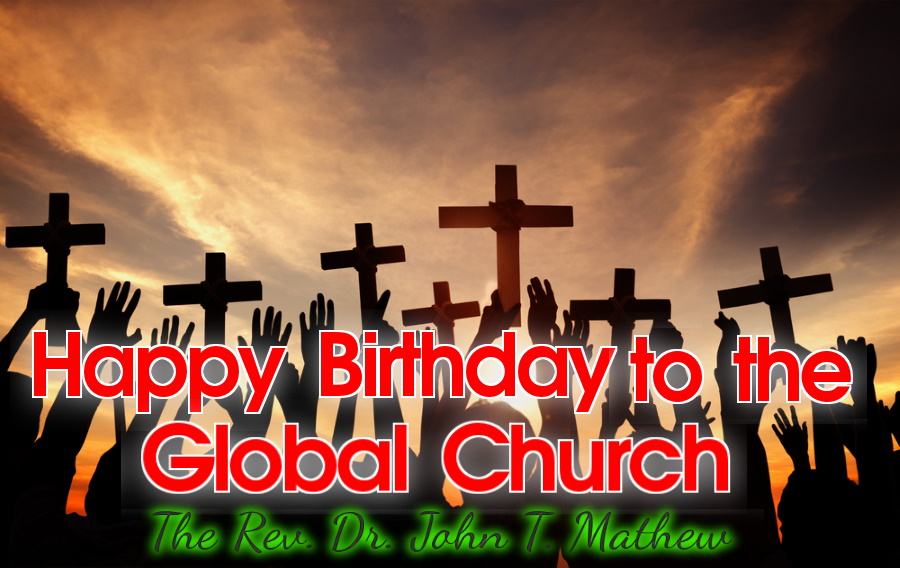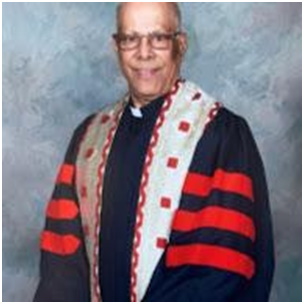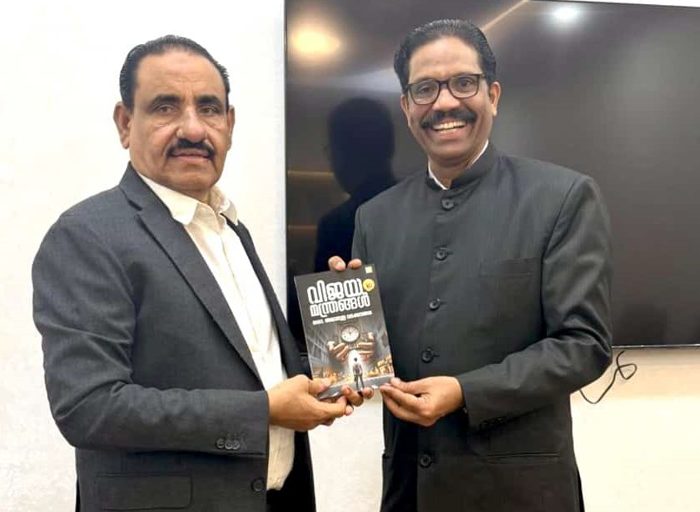A kosher Crest forJesus’Movement: Flame of Pentecost vs. Cross of a fallenEmpire?!
 The day of Pentecost –commemorated on Sunday, June 5, 2022 – is an anniversary celebration of funwith flashes and flickers of a noise from the skymindful ofahowling wind that filled the whole house where unnerved believers were ready and waiting long ago.What aneyepopping pageant of the tongues of fire that spread out and touched every person there!
The day of Pentecost –commemorated on Sunday, June 5, 2022 – is an anniversary celebration of funwith flashes and flickers of a noise from the skymindful ofahowling wind that filled the whole house where unnerved believers were ready and waiting long ago.What aneyepopping pageant of the tongues of fire that spread out and touched every person there!
Thiswas a highly praised experience when the Holy One breathed new life into the disenchanted disciples.Isn’t itbaffling that they dared to gatheron the upper floor of a two-story building south of the Zion Gate in the walls of the Old City of Jerusalem in spiteof, or because of, their post-crucifixion anxiety and post-resurrection disbelief holding on to theircourageand hope of the dawn of a new age?
It is not unfair to unmask that all Christian denominations – old and young – have marred the Good News of Jesus to their provisionally promising nonetheless risiblyisolatingpursuits. Such trumped-upnarrativeswhether Orthodox, Roman Catholic or Reformed – are time and again flawed. The task of leading our communities of faith in such volatile times of pandemic struggle and international falling-out is crucial. About 71 percent of the earth’s surface is water-covered; and most of the human body is water, which changes with age, gender, and hydration levels, with an average of roughly 60%. Like it or lump it, we live in an ever-shifting world. Therefore, the ideational query is: how do we – communities of many faith traditions – balance our values of life with those of a mercurial world in and around us?
 For too long the churches have blatantlytouched on the leading of the Spirit of God which is almost flouted, unfamiliar and scoffed at these days. Once a pastoral colleague and friend encouraged me to look for a greener pasture; in my naiveté as well as alacrity I welcomed hisgood word. Following an impromptu interview, a rejection letter showed up saying: “We prayed for the wisdom of the Holy Spirit to guide our choice. Since you are married, we chose another candidate; she is single with more time andvigourto take care of the parish”! Six months later the same folks contacted me to find out whether I would still be interested to accept the position I was brushed off. Now they found out that the single woman with lots of time on handwas a single mother! Also, her lesbian partner had moved in couple of weeks. In fact, their judgment was flawed as they were,first and foremost, xenophobic to have someone with Jesus’ skin colour in the pulpit. Did they employ a smidgeon of the prompting of the Holy Spirit when they concocted their obtuse decision? Jesus, a Palestinian Jew, was not a blonde man with blue eyes! Don’t we all unkemptly use God to get things done our way? Is it right for a faithful follower of Jesus to use God’s word to validate a blinkered agenda? For sure, endemic theology causes havoc.
For too long the churches have blatantlytouched on the leading of the Spirit of God which is almost flouted, unfamiliar and scoffed at these days. Once a pastoral colleague and friend encouraged me to look for a greener pasture; in my naiveté as well as alacrity I welcomed hisgood word. Following an impromptu interview, a rejection letter showed up saying: “We prayed for the wisdom of the Holy Spirit to guide our choice. Since you are married, we chose another candidate; she is single with more time andvigourto take care of the parish”! Six months later the same folks contacted me to find out whether I would still be interested to accept the position I was brushed off. Now they found out that the single woman with lots of time on handwas a single mother! Also, her lesbian partner had moved in couple of weeks. In fact, their judgment was flawed as they were,first and foremost, xenophobic to have someone with Jesus’ skin colour in the pulpit. Did they employ a smidgeon of the prompting of the Holy Spirit when they concocted their obtuse decision? Jesus, a Palestinian Jew, was not a blonde man with blue eyes! Don’t we all unkemptly use God to get things done our way? Is it right for a faithful follower of Jesus to use God’s word to validate a blinkered agenda? For sure, endemic theology causes havoc.
Recently House Speaker Nancy Pelosi was barred from receiving communion by a San Francisco archbishop.She can’t receive communion over her efforts to protect abortion rights in the US!The role of the Holy Spirit in the church’s decision to ban the House Speaker is more political than theological. The celebrant – patriarch, pope, cardinal, bishop,priest ornun – is astewardentrustedto distribute the elements already blessed by the faithful community. Jesus is the host who welcomes his followers to his table to eat and drink with him. A politicallyconvoluted issue became a burning global concern!
The cross and swastika originated in India. Buddhism is known for its lotus flower beneath the cross. The swastika is still used as an emblem of divinity and spirituality in Hinduism, Buddhism and Jainism. The Romans adopted cross as a ghastly device for capital punishment and the Germans took on the swastika.
A historic review of the use of such symbols in Asian and European cultures reveal that the cross, a sanctified killing device is not all that hallowed as most followers of Jesus fancy. Therefore, we are left with the query: what is the true symbol of the movement of the Good News of Jesus? The sign of the cross is a prayer, a blessing and perhaps a means of grace.
Tongues of fire, cross, fish, the Good Shepherd, dove or the first and the last letters of Greek alphabet?The church – made up of people who were imperialists and hapless slaves – couldn’t handle the heat brought by the empire and its ethos. Why would the hideous cross, Roman mousetrap to slaughter criminals represent the Good News of Jesus?
Rabindranath Tagoresignalled religious impostors:
“Leave this chanting and singing and telling of beads!
Open thine eyes and see thy God is not before thee!
God is there where the tiller is tilling the hard ground
and where the path-maker is breaking stones.
He is with them in sun and in shower,
and his garment is covered with dust.
Put off thy holy mantle and even like him come down on the dusty soil!”
Most salvific quirksare no different from putting lipstick on a pig heading to a mud bath. The tradition of breaking a coconut was started to stop the culture of animal sacrifice. Also, itmeans shattering one’s hubris orperfidious pride.Imagine a Russian church leader puts the blame of invasion on those who flout ‘God’s law,’ or another politician brandished an upside-down Bible in front of St. John’s Episcopal Churchhe rarely attends to get even with the global protests after George Floyd was brutally killed by law enforcement officers.
Aren’t semiotic hattricks of prostrating before Orthodox icons bolstered by the sign of the cross before bombing an innocent neighbour spiritualaerobics?
Remember the song:
Leaving flowers on your grave
Show that I still care
Black roses and Hail Mary
Can’t bring back what’s taken from me.
What a travesty that conniving Western empires over the past two millennia used the Roman cross tocajole, convert, colonize and wipe outmillions of innocent people and their cultures? It may take another millennium for the church to wake up and smell the coffee –
that the complicitous church is in denial of the coup degrâce of the
Good News of Jesus and Constantinian Christendom!
Auspiciously we expunged triumphalist andmilitaristic hymns that we sangduring the purple glory of imperialism.
“Onward Christian soldiers!
Marching as to war,
With the cross of Jesus
Going on before.”
“Lift high the cross, the love of Christ proclaim
till all the world adore his sacred name.”
Perspective is everything! The church is cursed with too many confusing antediluvian concepts(Pauline gentile-heathen-pagan-myths,gender discrimination, slavery etc.)of imperial Rome and Hellenism.The excessiveuse of foreign words such as ‘evangelical’ (breaking news), ‘episcopal’(supervise), ‘apostle’ (send) isskewed!It is time that we replace the cross of Jesus with the flames of the Day of Pentecost!Yes; never too late replace the crucifier,”solar” monstrance and pectoral crosses of nuns and monks with the fire of public service in the belly. Jesus never marketed cross as an ornament; however, he overtly reminded his followers that “I am the light of the world. Whoever follows me will never walk in darkness, but will have the light of life.” So, let us keep the light aflame.
In Canada we are busy exhuming remains of native children buried by European missionariesin former residential school yards! These days we are tearing down statues of slave traders, replacing reminders of atrocious autocrats and renaming streets and institutions! When would the church come to terms and get rid of the gilded crosses and swapthemwith the flames of fire moved downon the Day of Pentecost?
The Book of Acts says that the Jewish people gathered. in Jerusalem for the Feast of Pentecost. If you pause for a moment, you may start to wonder, is Pentecost… Jewish? Think about the word itself. What does Pentecost mean? In the Christian world we got so used to it, thanks to the Pentecostal Church, that we probably think it means “something about the Holy Spirit”. Right? Well, not quite.
Pentecost comes from the Greek word for “fiftieth”, referring to the fiftieth day after Passover. As mentioned above, on that day, the Jewish people celebrate the Feast of Weeks.On the Day of Pentecost, the one holy, catholic and apostolic Church celebrates its joyous birthday. The churches are decorated for Pentecost with red burning candles, red banners, red balloons and red vestments depicting the fiery rifeness of the Holy Spirit. Luke informs in the Acts of the Apostles (2:5-9) about an unforeseen avalanche of humanity from many communities reaching a fever pitch at the appearance of the Holy Spirit at Pentecost, fifty days after the Passover. The core competence of the Church springs from the breath of life that assembly received more than two millennia ago!
Many people in our lightly secular society opine that a religious community is irrelevant these days. The sinister climate of shenanigans in and around us does its best to douse the flames of faith in me. When we were mandated to live in isolation for almost three years, many of us experienced a hankering desire to gather and value an urgent role of community of faith where people look for care and support.
The euphoric event on the fiftieth day after resurrection set the first century Southwest world media ablaze with a promise of new life. Jesus’ crucifixion by the Romans was a frightful experience for his followers. A disheartened community of the crucified Jesus was granted an unexpected acceleration of breath-taking oxygen to spread its powerful message.
One afternoon, on my way home from University College, Thiruvananthapuram I came across a huge Pentecostal pack prinked in snow-white matching drapes marching up the Kanakakkunnu palace to listen to Oral Roberts, an American peddler of prosperity gospel. Thank goodness, an article I had skimmed in my father’s magazines helped me to revisit Roberts’ thespian performance.
A cradle mainline believer born and bred in first century Apostle Thomas apostolic pedigree, albeit snooping, I wouldn’t go in and join the holier than thou sycophants of a fringe flock. For an unflustered interloper, this kerfuffle was quite a pageant to investigate. A few minutes into his ruckus, Roberts hollered: ’Now, Holy Spirit leaves me to fire up; I am going to touch the person next to me; soon we all shall be a linked up with the Holy One’. He detected me – a forlorn antagonist and squealed: ‘I want that young man at the door to be touched as power leaves right now’. And I took off mumbling to myself: ‘God’s Spirit – a wind from God sweeping over the water – was here before the creation of this world and doesn’t need to be imported.’ It reminds me of a Kiwi colleague who stated that “we, Presbyterians, brought God to New Zealand”. Besides, the Holy Spirit is not conserved or manoeuvred by one ethnic roots, religion or region.
A Roman Catholic priest in Phoenix was fired because he would recite “We baptize you in the name of the Father, and of the Son, and of the Holy Spirit.” His bishop preferred “I baptize” in stead of “We baptize”. The baptizer baptizes a candidate on behalf of the community of faith. Jesus commanded: ‘Therefore, go and make disciples of all nations, baptizing them in the name of the Father and of the Son and of the Holy Spirit’ – Mathew 28:19 – is an unambiguous instruction for all believers.
Majority of people who see the light to become Pentecostal appear disillusioned folk who could not make the grade to manage a crisis. A display of unrestrained exuberance of an ex-drug addict or a shyster peddling salvation is hard to stomach. Many insecure but enthusiastic adherents demand an extremist brand of affectation. Such gratuitous schema writes off born-again spirituality as simplistic that lacks theological integrity. Befuddled by excessively disruptive conversion baggage in the life of the church, I accepted the powerhouse of the Spirit later in life immensely inspired by two of my teachers: KristerStendahl and Harvey Cox.
Blissfully, I might have heard ruach (Hebrew) or ‘Spirit’, a metonym for G-d when my parents took me to our local parish for baptism, what Martin Luther called dasTödlein, a little death. It is figuratively dying with Jesus to begin a new life as a new being out of the waters as Jesus rose up out of the grave. It is a rite of initiation into the Christian community, a symbolic cleansing that signifies the acceptance of new life within the church family.
Thereafter I would have heard of the creation stories where the Spirit was an energizing ‘wind’. The Spirit navigated Jesus to the desert to be tempted. It took decades for me to figure out Ezekiel’s vision of the Spirit. Lastly, the Spirit of God which homedin on the community of faith on the fiftieth day after the resurrection, known as the day of Pentecost, became the life force of my spiritual formation.
The faith tradition that began on the Day of Pentecost is a trivet movement grounded on the central unity of Creator, Redeemer, and Holy Spirit as threesome one Godhead. The Holy Spirit, discarnate and innominate nevertheless for some, the most dreaded and for others the dearest dimension of the Holy Trinity, has been used and misused in the church.
Leo Tolstoy taught us that faith is the force of life. Stendahl indicated the Spirit as the creative energy, an electrifying force that fires up the whole creation to life.
Nearly all neophytes in the Pentecostal communities affirm swellheaded bragging rights of being gleefully ‘saved’, which for sure is not a fruit of the Holy Spirit. Cold-calling, a solicitation of a potential customer with no prior interaction with a peddler, is the brazen tactic of interaction to recruit new members for the Pentecostals to which my sister-in-law became a victim.
After all, the phenomenology of religion that originally emerged in Asia had expanded to other parts of the world. The medieval European church faintly fantasised that it had decoded every spiritual imagination possible around Good News of Jesus more cogently than the older traditions east of Alexandria, Istanbul, and Jerusalem. So, cessationismand continuationism are two theological issues that crawled in during the European reformation.Cessationism, a Pauline perspective that spiritual gifts such as speaking in tongues, prophecy and healing ceased with in the first-century church, was a counteractive stance against claims of Roman Catholic miracles.
Baptised or not, God being our Creator, the presence of the Holy Spirit is always within us albeit the church insists that its power, unidentified and unemployed, comes with baptism.Harvey Cox caringly examined the major role of Pentecostal tradition in his book ‘Fire from Heaven: The Rise of Pentecostal Spirituality and The Reshaping of Religion In The 21st Century’. The only leading religious movement to originate in the United States was born in a rundown warehouse on Azusa Street in Los Angeles in 1901.
The next encounter with the word Spirit was a frightening experience from a variety of adults – theologically primed and those in the dark- spitefully sounding off their benchmark of the Spirit in the life of the community. Religion in post-World War II America became an entrepreneurial commodity marketed by well-heeled but theologically unschooled evangelists. Televangelism is not a source to find spiritual values. Many evangelical leaders with frayed nerves mislead the gullible by demonizing the liberal stance of main line denominations.
Psalm 51:11 always reminds me of the staple impulse of the Holy Spirit in us. The nudging, goading, encouraging power of the Holy Spirit is unlike toothless power grab, to quote Mary’ song, of the proud and mighty in their shaky thrones. MountaineerGeorge L. Mallory once observed: “What we get from this adventure is just sheer joy. And joy is, after all, the end of life. We do not live to eat and make money.”
We hear people say ‘Thank you Jesus’, ‘Thank you God’; have you ever heard or said ‘thank you Holy Spirit, my comforter, my helper’ a metonym for the Holy One?
T.S. Eliot (Four Quartets) reminds us:
“The dove descending breaks the air
With flame of incandescent terror
Of which the tongues declare
The one discharge from sin and error.
We only live, only suspire
Consumed by either fire or fire.”
++++++
The Rev. Dr. John T. Mathew is an ordained minister in The United Church of Canada who served several urban and rural congregations in Ontario, Canada since 1974 and taught in the Department of Religious Studies, Laurentian University, Sudbury, Ontario. Mathew was awarded Merrill Fellowship at Harvard Divinity School and served as Pastor-Theologian at the Princeton Center of Theological Inquiry. He was Ecumenical Guest Minister (2010) at St. Machar’s Cathedral, Aberdeen (Church of Scotland) and Interim Minister with the Presbyterian Church of Aotearoa New Zealand (2015-2017).





